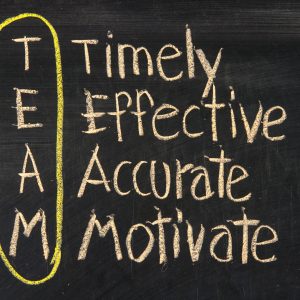The Depression-Dementia Link and What Caregivers Need to Know

 Far too often I talk to family caregivers who are concerned about their loved one's cognitive decline. It is not uncommon to hear such explanations go something like this:
Far too often I talk to family caregivers who are concerned about their loved one's cognitive decline. It is not uncommon to hear such explanations go something like this:
"Mom just has not been on top of things lately. She seems scattered. Her house is messier than normal, and she can't seem to get things in order. What concerns me most is that it doesn't seem to bother her, and that is so unlike her."
"Dad was always such a strong decision maker, and now he can't decide something simple, like where to go for dinner. It seems like he's stuck in limbo with just about everything when it comes to making choices - not just about the big stuff but everyday things".
"My wife has no interest in meeting with friends, going to church, or even going out for a stroll. This is so unlike her. I know she is blue, but it seems to be affecting her memory. The other day she asked me the same questions many times."
All of these scenarios certainly look like potential dementia-like symptoms. Being disorganized, not able to make decisions and social isolation are certainly cause for concern, especially with older adults. What often goes unnoticed is the possibility of depression.
What is Pseudodementia?
There is a link between depression and dementia. It actually has a name - it's called pseudodementia. Pseudodementia is a term—not an official diagnosis— that is sometimes used to describe symptoms that resemble dementia but are actually due to other conditions, most commonly depression. Unlike true dementia, depression that is caused by depression is often reversible.
Why is the Depression-Dementia Link often Overlooked?
My non-clinical opinion (but based on years of working with family caregivers and my own caregiving story) is that far too often families and even primary caregivers are not tuned into their loved one's risks for depression. Older adults who have at least one chronic health condition and 50% have two or more. Depression is more common in people who have illnesses that limit their normal daily activities.
Loss and grief are common denominators in the elderly, especially those who are living alone, lost loved ones, especially spouses, and because of illness have lost their independence. If, for instance, a parent has recently lost a spouse, moved from a life-long home, been diagnosed with a significant illness, can no longer drive or has to have help with everyday tasks - ALL of these are precursors to the possibility of that person's loss and grief lead to depression.
The domino effects that occur when illness strikes, depression sets in and cognitive decline is recognized are often confusing and shocking for families.
It's very important that loved ones look at life circumstances, and begin to make notes of lifestyle changes (such as not wanting to go out), lack of ability to make decisions, unkempt dress or cluttered living conditions. The importance of noting these things will make all the difference when visiting the doctor. Since we have limited time to spend with busy health care professionals, it is more important than ever that older adults have a health care advocate (preferably a family member) accompany their loved ones' to doctor visits.
More often than not depression is not going to be diagnosed during a doctor visit unless their advocate is there to share what has been observed. If it is too uncomfortable to do this with a loved one present, then ask for a consultation visit or at the least leave a note that clearly outlines your concerns so the doctor can read this before visiting with your loved one.
Dementia caused by depression is often reversible by treating the depression. Before loved ones jump to conclusions that their loved one has Alzheimer's disease or another form of dementia, they should step back and make comprehensive observations, share this with their healthcare professional and see if treating depression first will reverse what looks like symptoms of dementia.
As the holidays' approach and families come together, this is an important reminder to observe your loved one's emotional health just as much, if not more than what is going on physically. Be willing to talk to others and what they have observed, and even with your loved one should be on your to-do list.
And lastly, keep in mind that the oldest generation did not grow up in the era of "happy pills" so, talking about depression and the possibility of taking a medication to treat depression can often be considered an "off the table" topic. I've found that approaching with empathy and kindness and being prepared to explain that depression is treatable - just like high blood pressure is helpful. Above, as the saying goes, use your finest kid gloves.
Pam Brandon is President/Founder of AGE-u-cate Training Institute and a passionate advocate for older adults and those who serve them. A longtime family caregiver herself, Pam has guided thousands of care partners and their loved ones with complex challenges.


